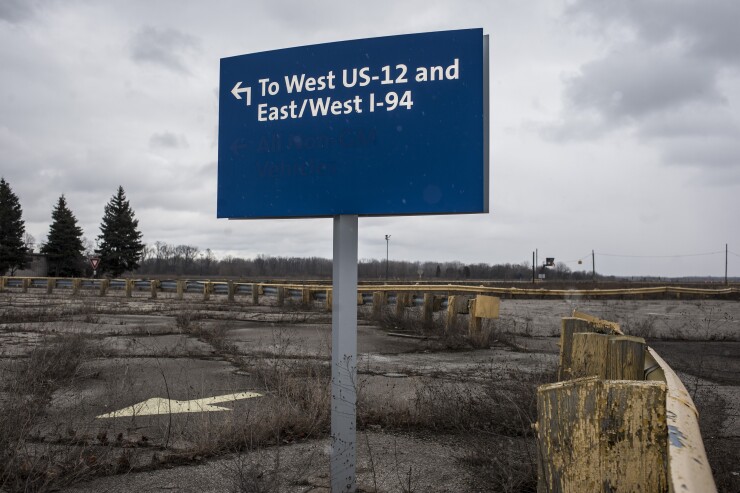Michigan lawmakers have approved $1.3 billion in extra funding for 2019 to fix roads and support toxic cleanups, school safety and local infrastructure projects.
Senate Bill 601, which passed Friday with a vote of 84-23 in the House and a 34-4 vote in the Senate, uses revenues generated from a new online sales tax and close to $100 million in unspent funds that were allocated to various state agencies last year.

The plan also relies on a separate bill, also approved Friday, that diverts expected revenues away from the school aid fund.
House Bill 4991, which passed the GOP-controlled legislature without any Democratic support, will divert roughly $140 million a year from schools. The bill would reduce revenue to the state’s general fund by $42 million in fiscal 2019 and $38.2 million in fiscal 2020, according to an analysis.
"We are severely under-funding our education," and the bill takes away a chance to partly fix that, said Rep. Donna Lasinski, D-Ann Arbor.
“Taking away from the future of Michigan’s children in the middle of the night to fill gaps in the budget left by Republican leadership is the definition of bad governance,” said Rep. Abdullah Hammoud, D-Dearborn. “Protecting our environment or fixing our roads does not have to come at the expense of school funding. Yet, two years of inaction by the legislative majority has put us in this position. As our state faces ongoing environmental and educational crises, we need to be putting more money towards both causes, not shifting existing funding from one to the other.”
Republican lawmakers said the school aid funds would be offset by the online sales tax.
"This is additional revenue that did not previously exist," Ari Adler, a spokesman for Gov. Rick Snyder, said in a statement. "That means we are not taking it from the School Aid Fund."
Michigan earlier this year began collecting sales tax from online business which is expected to increase the state's tax revenue by almost $250 million in the next three years. A June decision by the U.S. Supreme Court allows the Michigan Department of Treasury to collect sales tax from retailers located outside the state if the retailer exceeds $100,000 in sales or 200 or more transactions in Michigan within the previous calendar year.
The budget supplemental includes an additional $114 million to help fix state and local roadways, bringing the total investment for roads since 2017 to $2.6 billion. “Southeast Michigan drivers are reminded every day of the need to fix our roads, and I am pleased that we were able to provide this additional funding to help make that happen sooner,” said Sen. Marty Knollenberg, R-Troy, in a statement.
The deal also creates a $69 million "Renew Michigan" program to tackle that challenge. Under the deal, $45 million each year will flow to toxic cleanups, and $24 million would go to recycling and landfill oversight.
The additional funding will replace a tapped-out $675 million bond fund for environmental projects.
The supplemental also provides $25 million in new school safety grants to support emergency operations, safety training, building security and the confidential reporting program, OK2SAY. The added investment brings the total amount of money dedicated to school safety this year to $50 million.
Other approved funding for schools included a $30 million investment for mental health and support services and an additional $18 million in at-risk funding. The funds will also be used to aid local infrastructure projects.
"The governor will carefully review the final version of the legislation and then decide whether to sign it," said Adler.
The Republican's two terms in office conclude Jan. 1, when Democrat Gretchen Whitmer is sworn in as the state's next governor.





